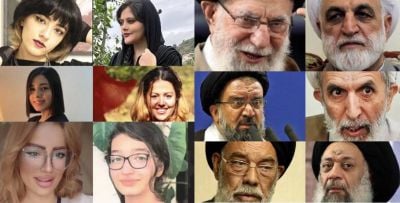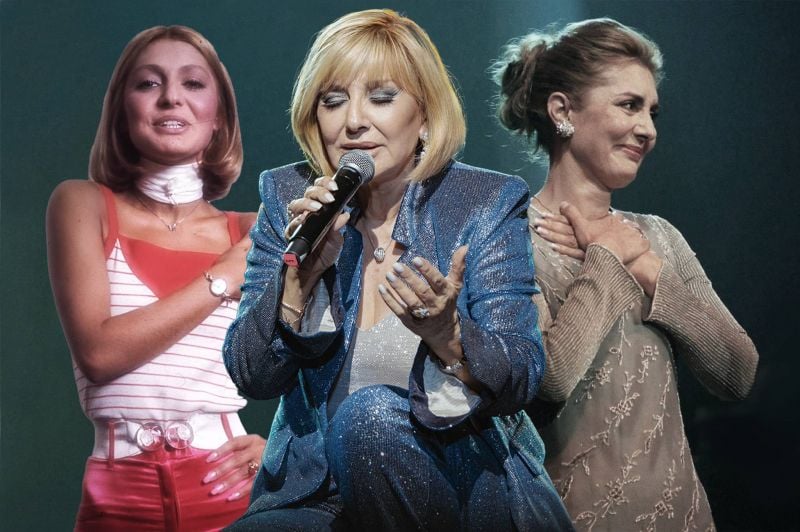
A compilation of Googoosh through the years. (Courtesy of Googoosh)
Googoosh arrived at Frankfurt airport on Sept.16, 2022, for a series of concerts following a stay in Istanbul. Little did she know that, during her three-hour flight from Turkey to Germany, the flame of revolt was reignited in her country.
As she stepped onto the tarmac, her team hesitated to deliver the devastating news of Mahsa Amini’s death. The 22-year-old Kurdish-Iranian woman had been arrested by Tehran’s morality police for not adhering to the dress code and died three days later.
Despite shock and grief, Googoosh remained committed to her performances and delivered what she described as the most poignant shows of her career to honor the memory of Amini.
A child prodigy, Googoosh began her career at the tender age of three, quickly establishing herself as a musician with a strong commitment to political and social issues.
In the space of 15 years, she rose to become the highest-paid, most profitable artist in Iran, a country where women hold a significant place in the arts.
Faegheh Atashin, her birth name, came to embody the spirit of a nation marked by freedom and a bohemian, liberated youth.
With record-breaking sales, acclaimed film roles, and numerous awards, she became the epitome of a thriving Iranian cultural scene.
She was in the United States in 1979, at the height of her fame, when the Islamic Revolution deposed the Shah from power.
Disoriented and unaware of the danger, she returned home to be with her people, but this decision resulted in 21 years of enforced silence by an ultra-authoritarian regime that prohibited the broadcast of her music.
During this time, the “most famous Iranian woman in the world” witnessed the horrors of war and the repressive measures of the new regime.
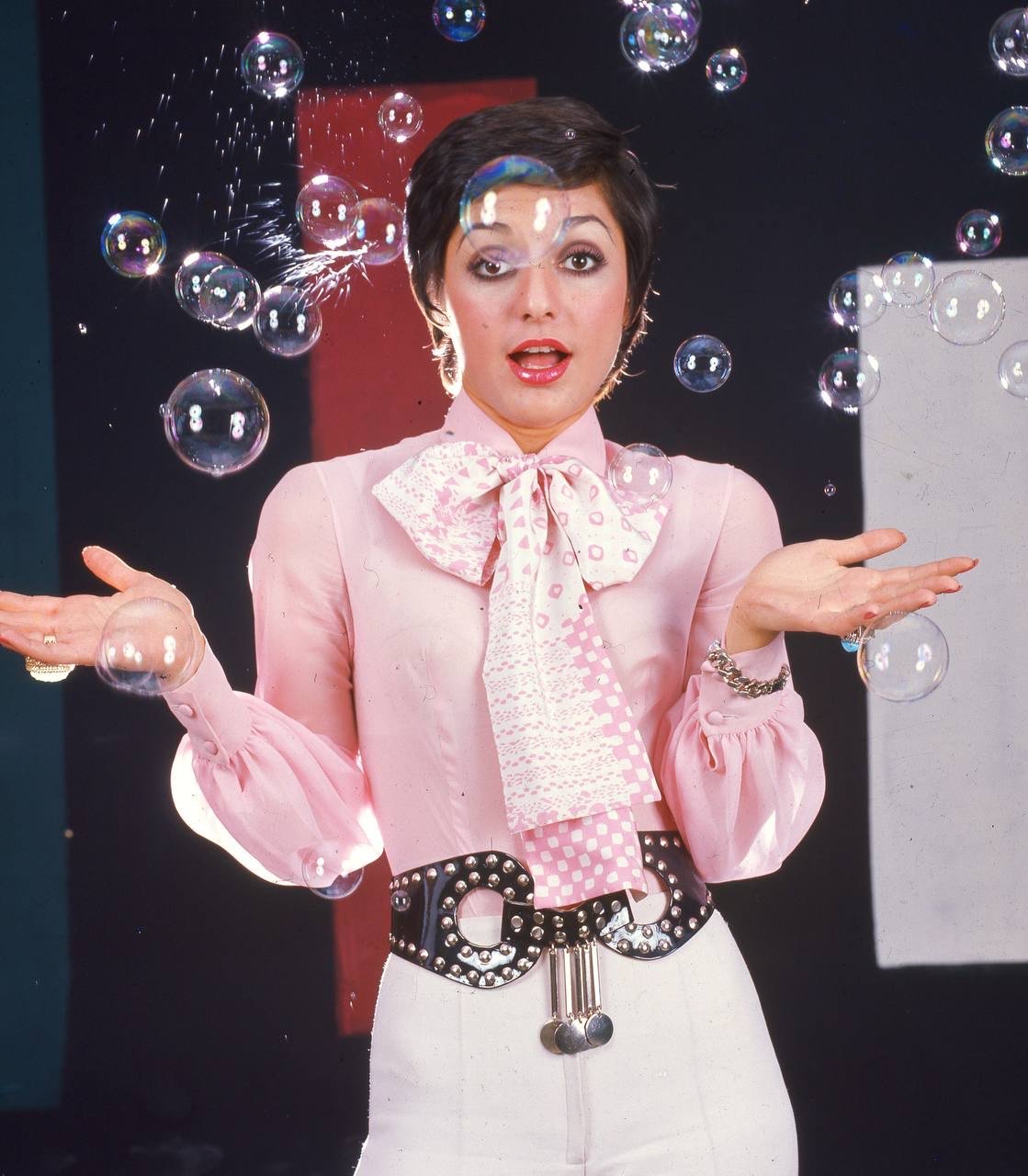 Googoosh was in the United States in 1979, at the height of her fame, when the Islamic Revolution deposed the Shah from power. (Courtesy of Googoosh)
Googoosh was in the United States in 1979, at the height of her fame, when the Islamic Revolution deposed the Shah from power. (Courtesy of Googoosh)
Googoosh, who had pledged not to sing again, was only able to leave Iran after she was granted a waiver in 2000.
At the age of 50, she made a triumphant return to the world’s largest concert halls, where she was hailed as a hero by Iran’s rebellious diaspora.
A champion of women’s rights and minority groups, the Persian diva continues to receive threats and warnings at each of her public appearances.
Following a break in her tour due to “emotional exhaustion,” Googoosh is determined to use her platform to make a difference once again.
Speaking in a soft, clear voice, she discusses the state of her country, sighs, and pauses to wipe away tears as she remembers Mahsa Amini.
After each question, she takes long pauses to reflect and find the right words.
Aware of the impact of her words, she aspires to use her voice to help others better understand her perspective, despite the language barrier.
The text of this interview has been edited and shortened for clarity.
What was it like to be an artist in Iran before 1979?
Iran was home. It was everything I ever knew. Before the 1979 revolution, we were allowed to be artists, allowed to be women, allowed to be human.
My generation saw the best days of Iran. All we ever wanted to do, as artists, was make a better country for our people by contributing to the
cultural scene.
You were abroad when the Iranian revolution started. Why did you decide to return home, despite the danger?
When the Iranian revolution started, I was in the United States, between Los Angeles and New York. Maybe I didn’t fully realize what was really happening back home. All I knew was that I was emotionally broken. At that time, more than ever, it was important to me to be in my country with my people. All I owned was in Iran. My life was there.
I was raised very traditionally. I used to pray every day until 2004. I always felt very Iranian. I thought deciding to go home would comfort my people.
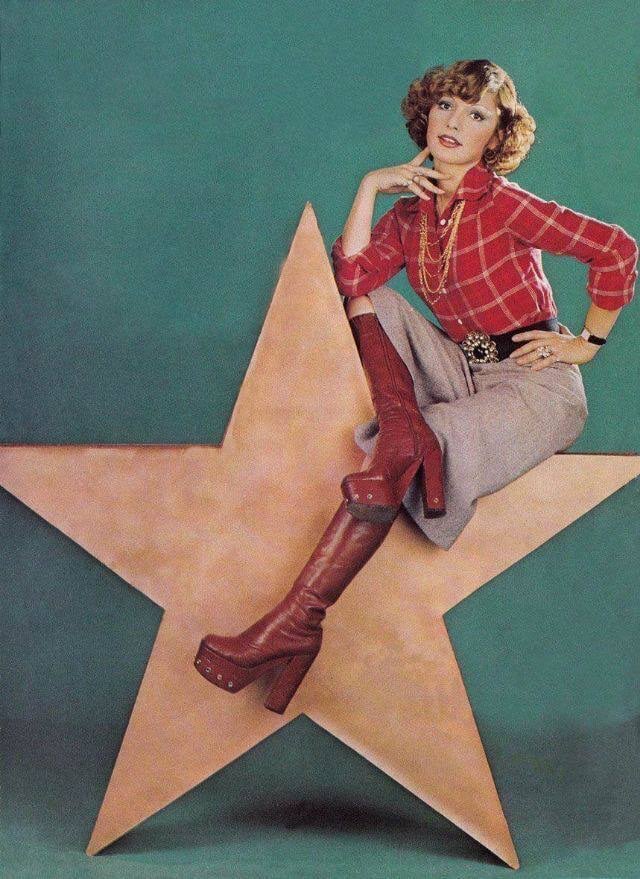 A child prodigy, Googoosh began her career at the tender age of three. (Courtesy of Googoosh)
A child prodigy, Googoosh began her career at the tender age of three. (Courtesy of Googoosh)
For the leaders and advocates of the 1979 Iranian Revolution, you represented something harmful to society. What is it about you that makes you so dangerous to them?
You should ask them! What I do is not dangerous.
As you know, all I do is sing and perform. For the system in place in Iran, everything is threatening. They are viciously menacing with people like me because they are afraid of the arts, afraid of the success that comes with it. They are controlling and do not want to see people supporting and applauding artists, women artists especially. The power we have, our voices, are what makes them afraid.
You were forced to remain silent for over two decades in Iran. How did you live without your art?
I started to understand our new reality when the war between Iran and Iraq started. For eight years, my country was at war. When your country is involved in a vicious and violent conflict, you just forget about yourself, so I did. Of course, living without singing, without my art and without the love I was used to receiving on stage was very hard for me, but I forced myself to stay alive, to go on with life, to learn how to live with this void in me. I had to stay beside my people through it all.
What did you feel the first time you went back on stage after all these years?
That feeling is indescribable. The day I went back on stage after some decades, I was constantly nervous. I was truly speechless. I stood on stage, shaking, trying to receive the love I missed so dearly for 21 years. Years after my comeback, the audience continues to give me the strength to keep doing what I do. But if I have to be honest, I also had to prove it to myself — prove that I could stand up, sing and dance on after all these years in silence. I did.
Your songs and art became more political as the years went by. Did you feel it was your duty to speak out?
I believe it is my duty to speak with and for the people of my country. Iran is like the Titanic. We living outside it are the survivors, so we need to help those left in the cold sea. The message I always wanted to convey is one of unity. In times like these, it is all about oneness.
As much as I can see and feel, my audience always supported my political stances. From my platform, I want to help get the word out. It is part of my job, now more than ever. Artists are the cheerleaders of this revolution. We are cheering for this new brave generation of men and women in Iran.
As a singer, I want to bring my fight to the stages of the world. I want to sing and create new songs to support this movement, to share the stories being told. I want to be beside my people, always.
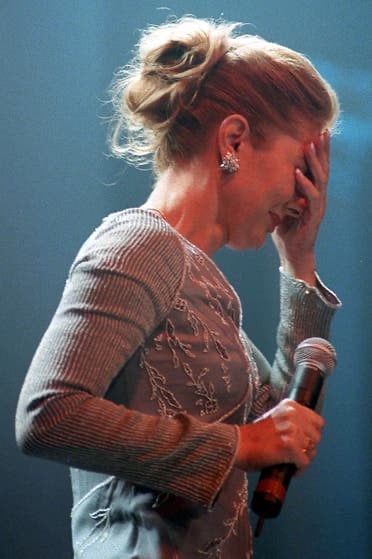 A champion of women’s rights and minority groups, the Persian diva continues to receive threats and warnings at each of her public appearances. (Courtesy of Googoosh)
A champion of women’s rights and minority groups, the Persian diva continues to receive threats and warnings at each of her public appearances. (Courtesy of Googoosh)
Videos of Mahsa Amini singing your songs are circulating on the web. What did you feel when you saw these videos?
They showed me videos of Mahsa Amini singing one of my songs in her room in the middle of a television interview. I broke down. I cried and had no control over my feelings. Her innocent face and young energy had me so emotional. She was only 22, 22! How amazing is it to be this young and the leader of a revolution? Mahsa helped Iranians unite for the first time in 44 years. If Mahsa was in front of me today, I would hug and kiss her and let her know how important she was and still is. Women started this revolution and men then joined to support them. Women are absolutely the leaders of this revolution. It is historic because, for the first time in our history, women are the revolutionary figures we always aimed to be.
How are you still connected to everything happening in Iran after all these years living abroad?
Like everybody else, I have been following the news on social media and trying to share useful information to alert people to what’s going on. Every morning, I start my day by checking the news. Every minute of every day, I want to stay informed. I’m always stuck to the radio and I read everything. This is my new routine and it has been for the last six months.
Today you are back on stage.
I was lucky enough to perform all over the world. I came to Beirut before the revolution started in Iran and before the war started in your country, maybe in 1975. I had a performance at the Phoenicia Hotel for a fundraiser to help Beirut women in need. While I was there, I learned that Fairuz was doing a concert in the capital, so I obviously asked to meet her. We met backstage. The encounter was brief, as I didn’t want to bother her. She looked tired. I remember her voice, her masterful presence on stage.
This was my only time in Beirut. I love performing in the Middle East, It’s the closest region to home. Every time I come to an Arab country, I jokingly tease my team: “Next concert, Tehran!"

